Description
ABSTRACT
An Appraisal of the Duties of Directors of a Public Company in Nigeria
Jonathan Aluju* and Joseph Onele**
This article considers the duties imposed by law and sound principles of corporate governance that directors of a company should adhere to. It posits that it is ‘in the best interest’ of a public company that directors should not only discharge their duties dutifully, as required under the law, but also act ‘conscientiously,’ in accordance with sound principles of corporate governance. The article asserts that the Securities and Exchange Commission (SEC) Code of Corporate Governance for Public Companies (SEC Governance Code) is not intended as a rigid set of rules, but as a guide to facilitate sound corporate practices and minimum standards of corporate governance expected particularly of public companies with listed securities. The responsibility for ensuring compliance with the principles and provisions of the SEC Governance Code lies primarily with the Board of Directors.
INTRODUCTION
Whilst the Companies and Allied Matters Act1 (CAMA) provides exhaustively for duties of directors from sections 279 to 283, the SEC Code of Corporate Governance for Public Companies (SEC Governance Code) stipulates salient principles that should guide directors of public companies in the discharge of their duties. For starters, there are established corporate governance structures setting out the hierarchy of decision making within corporations as gleaned from a combined reading of Sections 63 and 64 of CAMA.2 Section 63(1) CAMA specifically empowers a company to act through its board of directors, officers or agents, appointed by, or under authority derived from the members in general meeting or the board of directors. While a cursory reading of Section 63 CAMA leaves no one in doubt as to the ‘statutory recognition’ of the functions and/or duties of directors, Section 64 CAMA empowers the board of directors to: (a) exercise their powers through committees consisting of such members of the body as they think fit; or (b) from time to time, appoint one or more of their body to the office of managing director. The board of directors may also delegate all or any of their powers to such managing director. It goes without saying, therefore, that directors play a very major role in the continued existence of a company. Indeed, it can be safely asserted that directors are the ‘mind and will of the company’.3
* LL.M (Cantab), BL. Senior Associate and Head of Power & Infrastructure Practice Group, Olaniwun Ajayi LP
** LL.B (First Class Honours, University of Ibadan), BL. Associate, Mergers & Acquisition and Private Equity Practice Group, Olaniwun Ajayi LP
The authors are very grateful to Ms. Theresa Emeifeogwu (Associate at Olaniwun Ajayi LP) for her invaluable contribution to this article. The authors also express their gratitude to the reviewer for the very helpful comments
- Cap C20, Laws of the Federation of Nigeria 2004 (CAMA)
- See Sections 63 and 64 of the Companies and Allied Matters Act, Cap. C20, Laws of the Federation of Nigeria (LFN) 2004 (hereinafter referred to as CAMA). Section 63(1) CAMA specifically provides that “[a] company shall act through its members in general meeting or its board of directors or through officers or agents, appointed by, or under authority derived from the members in general meeting or the board of directors. Meanwhile, Section 64 CAMA empowers the board of directors to: (a) exercise their powers through committees consisting of such members of the body as they think fit; or (b) from time to time, appoint one or more of their body to the office of managing director and may delegate all or any of their powers to such managing director
- John H. Farrar, ‘The Personal Liability of Directors for Corporate Torts’ (1997) 9 Bond LR 102; Susan Watson and Chris Noonan, ‘The corporate shield: What happens to directors when companies fail?’ (2005) University of Buckland Business Law Review 32; Samson Erhaze and Daud Momodu, ‘Corporate Criminal Liability: Call for a New Legal Regime in Nigeria’ (2015) 3(2) Journal of Law and Criminal Justice 63-72

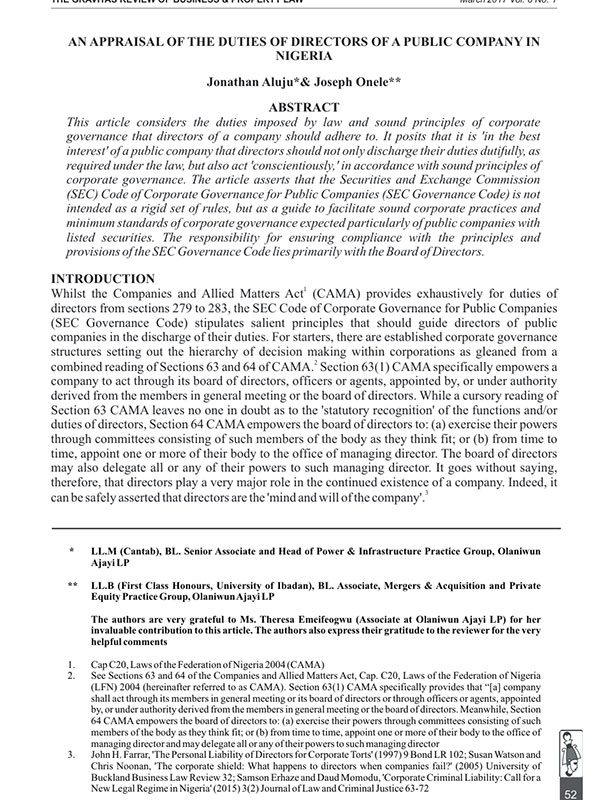
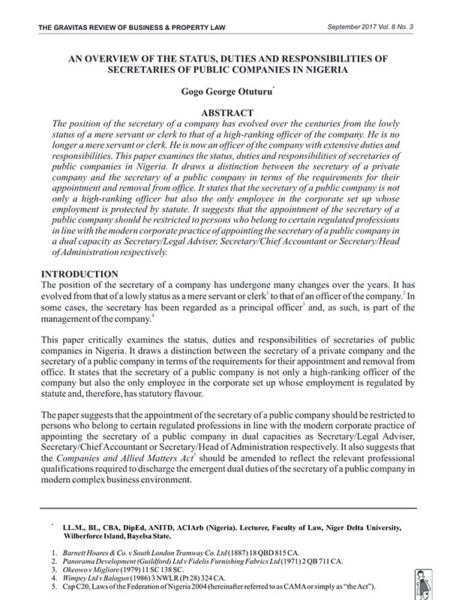
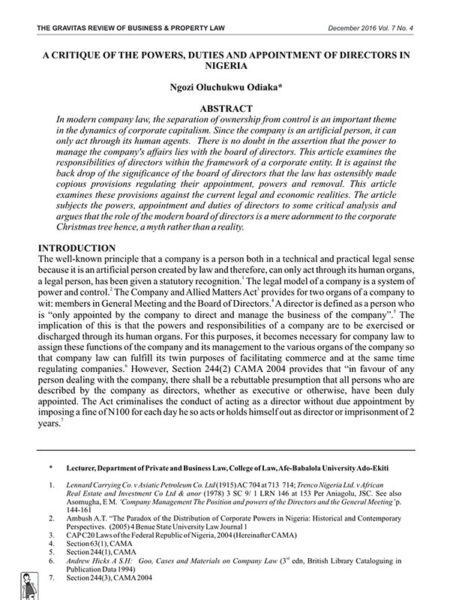
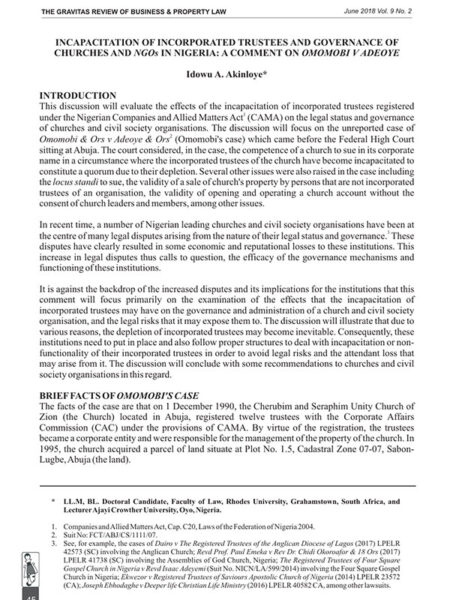
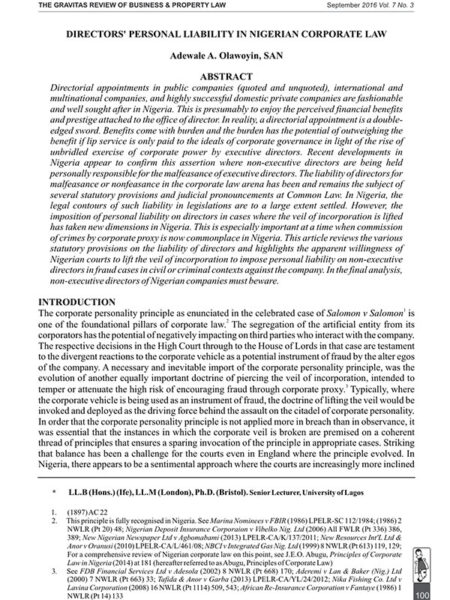


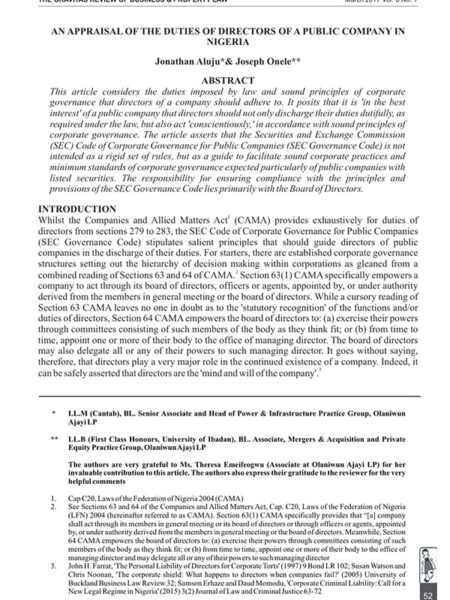
Reviews
There are no reviews yet.